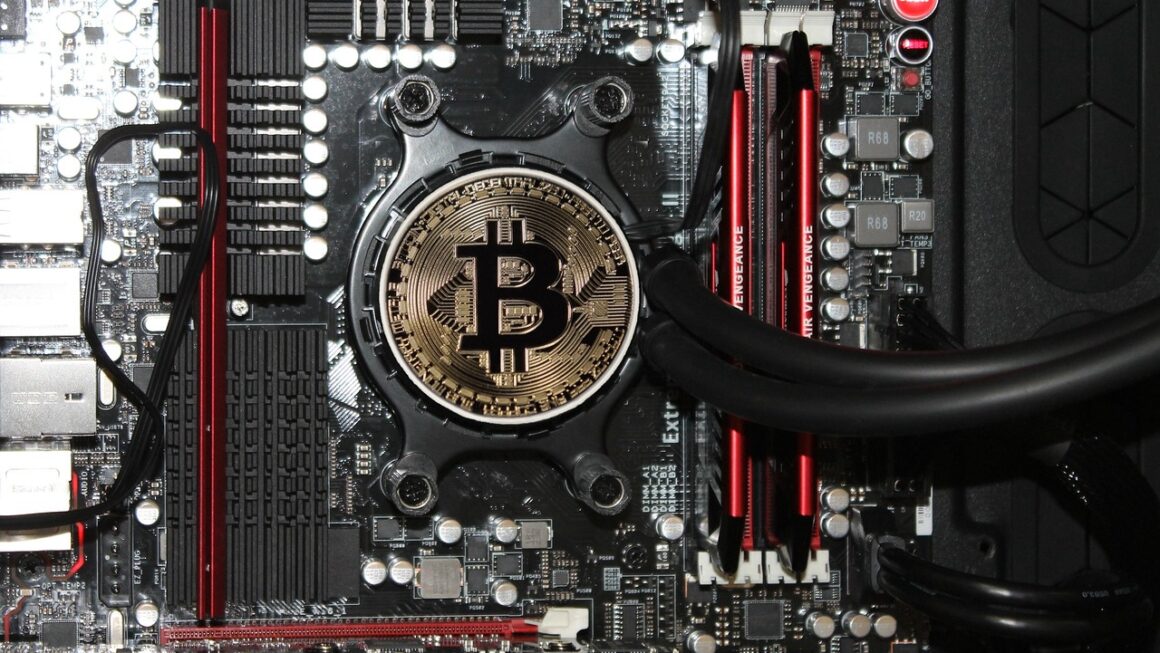Smart contracts, often hailed as the backbone of decentralized applications and the future of secure agreements, are revolutionizing how we conduct transactions and interact online. Imagine agreements that execute automatically when predetermined conditions are met, eliminating the need for intermediaries and reducing the risk of fraud. This is the power of smart contracts, and this blog post will delve into the intricacies of these digital agreements, exploring their benefits, applications, and how they are shaping the digital landscape.
What are Smart Contracts?
Defining Smart Contracts
A smart contract is essentially a self-executing contract written in code. It’s a program stored on a blockchain that automatically executes when predetermined conditions are met. These conditions are defined within the code of the contract itself. Think of it as a digital vending machine: you insert the required input (payment), and the machine automatically dispenses the desired output (product), all based on pre-programmed rules.
Key Characteristics
- Decentralized: Smart contracts operate on a blockchain, a decentralized ledger, ensuring no single point of failure or control.
- Immutable: Once deployed, a smart contract’s code cannot be altered, providing transparency and trust.
- Autonomous: The contract executes automatically when conditions are met, without requiring human intervention.
- Transparent: All transactions and code are publicly auditable on the blockchain.
- Secure: Cryptographic principles and blockchain technology ensure the security and integrity of the contract.
How Smart Contracts Work: A Simplified Example
Let’s consider a simple smart contract for a betting agreement. Alice and Bob agree to bet on the outcome of a coin flip. The smart contract is programmed with the following logic:
This process is automated and enforced by the smart contract code, ensuring fair execution without needing a trusted third party.
Benefits of Using Smart Contracts
Increased Transparency and Trust
Smart contracts eliminate the need for intermediaries, fostering trust between parties. The code is publicly auditable, and all transactions are recorded on the blockchain, ensuring transparency. This drastically reduces the risk of fraud and disputes, as all actions are verifiable.
Enhanced Efficiency and Speed
The automated execution of smart contracts significantly accelerates processes. No more waiting for manual approvals or intermediaries to facilitate transactions. This results in faster transaction times and reduced administrative overhead.
Reduced Costs
By eliminating the need for intermediaries, smart contracts reduce transaction fees and other related costs. This makes them particularly attractive for industries that rely heavily on trusted third parties, such as finance, real estate, and supply chain management.
Improved Security
The immutable nature of smart contracts and the underlying blockchain technology make them highly secure. Once deployed, the code cannot be altered, ensuring that the contract executes according to its intended logic. This protects against unauthorized modifications and tampering.
Automation and Accuracy
Smart contracts automate complex processes, minimizing the risk of human error. The predefined rules ensure that transactions are executed accurately and consistently, improving overall efficiency and reliability.
Applications of Smart Contracts
Supply Chain Management
Smart contracts can track goods as they move through the supply chain, ensuring transparency and accountability. For example, a smart contract can automatically release payment to a supplier once goods reach a specific location and meet quality standards, as verified by IoT sensors.
Real Estate
Smart contracts can streamline real estate transactions by automating the transfer of property ownership and escrow processes. This reduces paperwork, accelerates closing times, and increases transparency for all parties involved.
Healthcare
Smart contracts can securely manage patient data and automate insurance claims processing. For example, a smart contract can automatically verify a patient’s insurance coverage and process a claim once specific medical procedures are performed.
Voting Systems
Smart contracts can create transparent and secure voting systems, ensuring that votes are accurately recorded and tallied. This can help prevent voter fraud and increase trust in the electoral process.
Decentralized Finance (DeFi)
Smart contracts are the foundation of DeFi applications, enabling decentralized lending, borrowing, and trading platforms. These platforms offer users more control over their finances and provide access to financial services without relying on traditional intermediaries.
Challenges and Considerations
Security Vulnerabilities
While smart contracts offer enhanced security, they are not immune to vulnerabilities. Poorly written code can be exploited by hackers, leading to significant financial losses. Thorough auditing and testing are crucial to identify and mitigate potential security risks. Recent examples of DeFi hacks highlight the importance of robust security measures.
Scalability Issues
Some blockchain networks, such as Ethereum, face scalability challenges, which can impact the performance of smart contracts. As transaction volumes increase, network congestion can lead to slower transaction times and higher fees. Layer-2 scaling solutions are being developed to address these limitations.
Legal and Regulatory Uncertainty
The legal and regulatory landscape surrounding smart contracts is still evolving. There is a lack of clear legal frameworks for addressing issues such as contract enforcement and liability. This uncertainty can hinder the widespread adoption of smart contracts.
Beyond Unicorns: Building Resilient Tech Startups
Oracles and Off-Chain Data
Smart contracts often need to access data from external sources, such as price feeds or weather data. Oracles are used to provide this off-chain data to smart contracts. However, relying on centralized oracles can introduce vulnerabilities and compromise the security of the contract. Decentralized oracle networks are being developed to address this issue.
Conclusion
Smart contracts are a powerful technology with the potential to revolutionize various industries. While challenges remain, the benefits of increased transparency, efficiency, and security make them an attractive option for automating agreements and building decentralized applications. As the technology continues to evolve and mature, we can expect to see even more innovative applications of smart contracts in the years to come.
Read our previous article: Decoding The Edge: Network Infrastructures Next Evolution
For more details, see Investopedia on Cryptocurrency.




